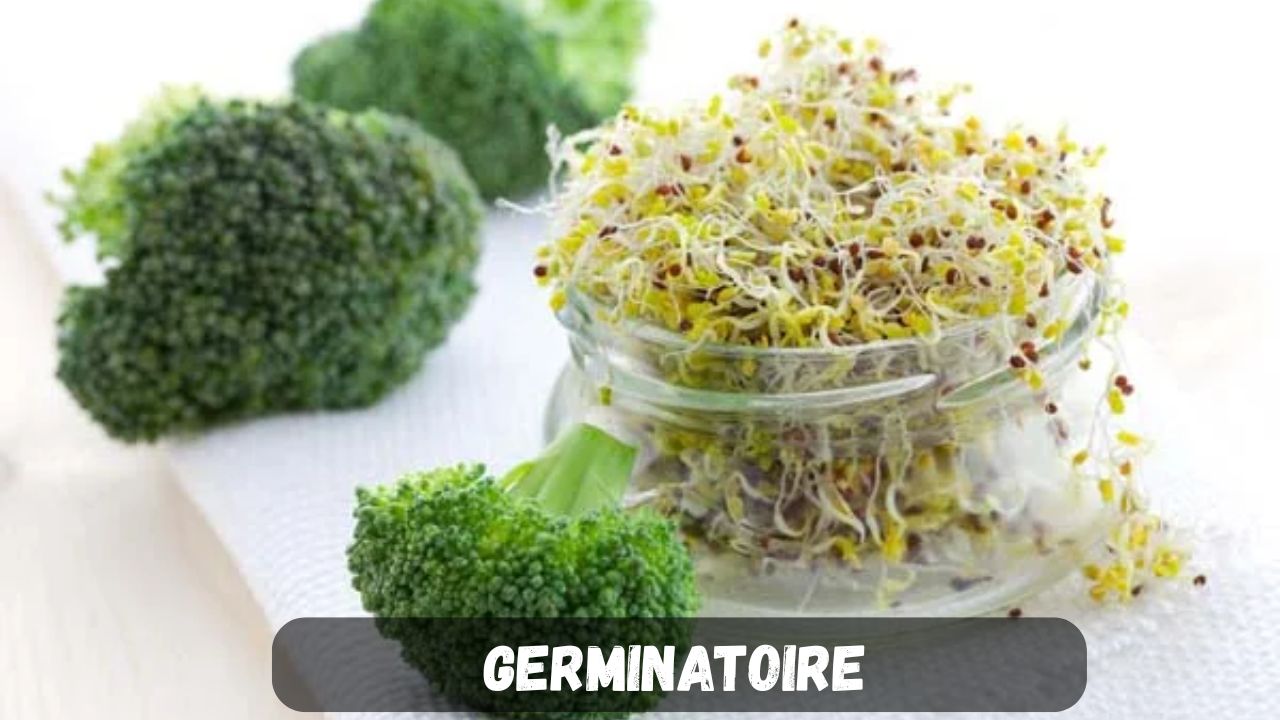Germinatoire” comes from the French verb germer, which means “to sprout” or “to germinate.” It refers to the process of seeds coming to life, breaking out of dormancy, and beginning to grow. But the word also works as a metaphor it means a fertile place or idea where new things start and grow.
In this article, you will learn both sides of germinatoire the science (how seeds actually sprout, what conditions they need) and the symbolic meaning (how it can stand for creativity, ideas, and renewal). We will also explore practical tips, like germinatoire maison how you can create your own little germination space at home and what symbolic power germinatoire holds in culture and art.
| Category | Fact / Figure (Refined) | Source |
| Seed Germination | Good crop seeds usually sprout well. On average, 80–95% of them make it if the conditions are right. Nature likes balance. | FAO |
| Time to Germinate | Most veggie seeds don’t take long. Just 3–10 days and you’ll see tiny green shoots, as long as they get water, oxygen, and a bit of warmth. | Britannica |
| Chambre Germinatoire | In labs, seeds get a luxury start. Chambers keep temps between 15–30°C and humidity around 70–90%. Feels like a spa for plants. | ISTA |
| Pouvoir Germinatoire | Farmers measure seed “power.” It’s the % of seeds that sprout in about 7–14 days. High numbers mean stronger crops and better harvests. | OECD Seed Schemes |
| Urban Gardening | By 2030, about 60% of people will live in cities. More rooftops and kitchens will turn into germinatoires for herbs and microgreens. | UN |
| Microgreens Market | Tiny greens, big business. The microgreens market may reach $2.2 billion by 2028. Home kits are driving this quiet boom. | Fortune Business Insights |
Etymology and Meaning
Origins: germen → germer
- The word germinatoire comes from French germer, which means “to sprout.”
- Germer has its roots in Latin germen, meaning “sprout, bud, or shoot.” Etymonline
- Over time, germination and to germinate have developed from these same roots. Etymonline
Literal and Figurative Senses of germinatoire
- Literal sense: Germinatoire refers to the process of growth, especially when seeds or plants begin to sprout.
- Figurative sense: It also means a place or idea that helps new things start ideas, art, change, creativity.
- So the word joins two ideas: physical growth (plants) and growth of thoughts or possibilities.
Scientific and Agricultural Context
The Germination Process
Seeds need certain conditions to begin to grow. These conditions include:
- Water: Seeds must take in water. This activates their internal functions. Encyclopedia Britannica
- Oxygen: Seeds use oxygen to breathe while growing. If there is no oxygen, the seed cannot germinate. Environmental Research Institute
- Right Temperature: Seeds need warmth (or sometimes coolness) in the right range. Too cold or too hot will stop them. Australian Academy of Science
- Light or Darkness: Some seeds need light to germinate, others need darkness. It depends on the type. Encyclopedia Britannica
Chambre germinatoire (Germination Chamber)
- This is a controlled place where seeds are germinated.
- It lets you control temperature, light, moisture, and sometimes oxygen.
- Used in seed testing and agriculture to get reliable, consistent growth.
Pouvoir germinatoire (Germination Power)
- Means how many seeds sprout under given conditions.
- Important for farming: you want a high germination rate so many plants grow.
- Also matters for food security: reliable planting helps ensure good harvests.
Germinatoire Maison: Bringing Growth Indoors
What is germinatoire maison?
- It means setting up a germinatory at home.
- You make a space to sprout seeds, grow microgreens or herbs.
- It can be small like a jar or tray or more advanced.
DIY Methods
- Seed trays: shallow trays with holes for water drainage.
- Jars: you soak seeds in jar, then rinse and drain daily.
- Hydroponic kits: growing plants in water or in a water-based medium without soil.
- Indoor sprouting mats or soil: using small amount of soil or special mats.
Benefits of Growing at Home
- You get fresh greens (microgreens, herbs, sprouts) quickly.
- It’s more economical than buying them.
- Better control over cleanliness, so fewer chemicals.
- Helps you eat healthier taste is fresh, nutrients stay high.
Appeal: Sustainability and Urban Gardening
- You use less space; perfect for small homes or apartments.
- It reduces waste (you grow what you need).
- You use less transport and packaging, better for the planet.
- It feels good: you see life begin, you care for something, you eat it.
Cultural and Metaphorical Dimensions
In French, terrain germinatoire simply means fertile ground. A place where new life begins. Not just in soil, though. In daily life too. A university, for example, can be a terrain germinatoire. You walk through its gates and suddenly you’re in a space buzzing with people, knowledge, and restless ideas. Innovation feels like it’s hanging in the air.
Writers love this image. A seed pushing through dark soil, stretching towards the light. In books, it often becomes a symbol of fresh starts. In philosophy, it’s a reminder that change doesn’t always come with a bang. Sometimes it starts small. Quiet. Like a whisper. But then it grows, and it becomes powerful. Germination is hope in slow motion. It’s proof that something new and better can rise from almost nothing.
You see the metaphor everywhere. A community group working on local change becomes a germinatoire of social action. A messy art studio? A germinatoire of creativity. Even the internet itself wild, unpredictable is a germinatoire. Ideas sprout there in seconds, spreading faster than weeds in spring.
Symbolism and Broader Implications
Think of creativity like a seed. Tiny, invisible even. Inside it, though, is potential. A story, a painting, a new invention. All it needs is the right space, a germinatoire, to wake it up. A little support. Some resources. A spark of inspiration. That’s when the seed cracks open. Artists and dreamers often describe their process this way “I planted the idea, now I’m waiting to see what grows.”
But seeds don’t sprout right away. Sometimes they sleep. For days. For years. Then, one morning, conditions shift and they break through. That’s resilience. That’s renewal. The end of one season turning into the start of another. Germinatoire becomes a symbol of patience, survival, and the quiet strength to begin again.
It also speaks to society. Think of innovation labs or startup hubs they’re literal germinatoires of ideas. Schools and classrooms? Germinatoires of knowledge, of progress. Even revolutions begin this way. Just a few seeds of thought. Planted in the minds of people. Then watered by courage, shared in whispers, until suddenly the sprout is unstoppable.
And that’s why the word still matters. We’re living in fast times. Change hits hard and quick. But we still need slow spaces, fertile spaces. Our own germinatoires. A room, a community, a mindset. Somewhere things can grow quietly before they face the world. Because at the end of the day, everything big starts small. Always.
Conclusion
In the end, germinatoire is not just about seeds. It’s about how we look at life. Growth always begins small. A sprout pushing through dirt. An idea whispered in a café. A sketch on the back of a notebook. Simple starts. But if you give them the right care, the right space, they turn into something real. Science shows it with germination.
Culture shows it with art and creativity. History shows it with movements that began almost invisible. That’s why this word carries weight. Because resilience, innovation, transformation they never arrive complete. They grow. Slowly, sometimes awkwardly, in their own germinatoire.








